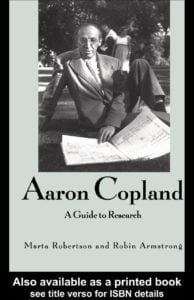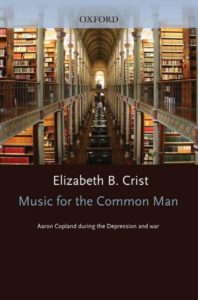Table of Contents:
Aaron Copland (sheet music in the #smlpdf)
Partitions, sheet music in our Library:

Best Sheet Music download from our Library.

Copland – Piano Fantasy
Copland – Piano Sonata
Copland – Fanfare For The Common Man (Score And Parts – Boosey & Hawkes)
Copland – Four piano blues sheet music
Copland – The Cat and The Mouse – Scherzo Humoristique
Copland Aaron (Arr. Bernstein) – El Salón México
Copland Clarinet Concerto (Clarinet And Piano Reduction)
Copland Passacaglia for Piano solo
Copland Rodeo – Corral Nocturne (piano sheet music)
Copland Three Moods (piano)
Copland, Aaron – A Guide To Research Composer Resource Manual (2001)
Copland, Aaron – Duo For Flute And Piano
Copland, Aaron – Música e Imaginación (Español-Spanish) (1960)
Copland, Aaron – 9 Songs
Copland, Aaron – Danzón Cubano -Piano solo arrangement by Leo Smit
Copland, Aaron – Los Placeres de la Música (Español-Spanish)
Copland, Aaron – The Selected Correspondence Of (2006)
Copland, Aaron Piano Variations

Please, subscribe to our Library. Thank you!
American Classic – Aaron Copland
AMERICAN CLASSIC – AARON COPLAND 0:00– Richard Hickox/City of London Sinfonia – Appalachian Spring (Complete 1945 Version) 26:12– London Philharmonic Orchestra/Carl Davis – Fanfare for the Common Man
Aaron Copland
(Brooklyn, United States, 1900 – North Tarrytown, id., 1990) American composer and conductor, one of the most solid and interesting musicians of his homeland. Born, like his colleague and friend Leonard Bernstein , into a Jewish family of Russian origin, Copland began his musical education in New York. In 1921 he moved to Paris, where for three years he received composition classes from the famous Nadia Boulanger.
His most representative works are part of a trend that sought its inspiration in American folklore, sometimes (as in the Clarinet Concerto , composed in 1948 for Benny Goodman ) with reminiscences of jazz. (1942) belong to this period Salón México (1933-1936) and Portrait of Lincoln , but the ballets Billy the Kid (1939), Rodeo (1942) and Primavera Apalache (1944) are the most notable and applauded scores of this creative stage. of Copland, who could be described as nationalist.
Particularly noteworthy is the ballet in two Rodeo scenes ; With music by Copland and plot and choreography by Agnes de Mille, Rodeo has been one of the favorite pages of the genre in the United States, as demonstrated by its continuous revivals. Its success lies in the use of North American folklore material, at a time when the war atmosphere that preceded the Second World War had maximized nationalist feelings. It was premiered by the Ballets Russes de Monte Carlo on October 16, 1942, at the Metropolitan Opera House in New York.
Subsequently, Aaron Copland’s style became more austere and abstract, and he integrated techniques more committed to his historical time such as dodecaphonism, in works such as the Piano Quartet (1950) and Connotations (1962), which, despite Its considerable interest and impeccable workmanship did not find the same echo among the public. As a conductor, he lavished himself on the interpretation of his own music.

